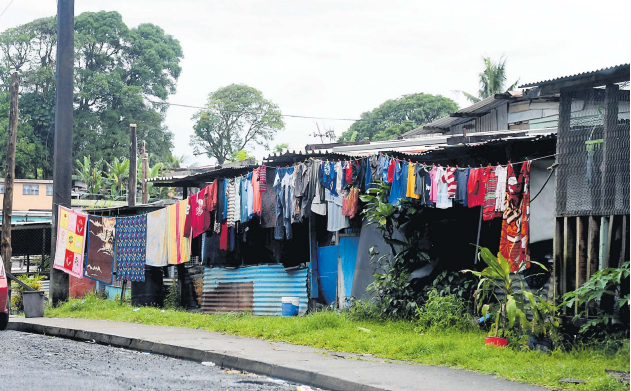THERE is a critical need to regularise informal settlements in Fiji.
Opposition Member of Parliament Parveen Bala highlighted this issue in Parliament last month, emphasising that informal settlements pose significant challenges to the country’s social and economic development, security, and human dignity.
Bala stressed that housing is a fundamental human right, and leaders are compelled to ensure that every Fijian has access to safe, secure, and affordable housing.
20 per cent live in informal settlements
Mr Bala said the urgency of addressing informal settlements was underscored by the scale of the issues.
“According to estimates, over 200,000 Fijians, roughly 20 per cent of our population live in informal settlements,” Mr Bala said.
“These communities are open, overcrowded, lack access to clean water, reliable sanitation and basic utilities, and are exposed to high risk of flooding and environmental issues.
“This insecure living environment contributes significantly to poverty levels, which remain at 29.9 per cent nationally.”
Informal settlements linked to increased rates of crime, drug abuse and social violence
Mr Bala said while urban poverty was rising, informal settlements were also linked to increased rates of crime, drug abuse and social violence.
“In recent years, incidences of domestic violence and abuse against women and children have escalated within these communities fuelled by stress, insecurity and lack of basic requirements.”
He said this was not merely a housing issue, it was a national development issue.
“Informal settlements presents an opportunity to rethink our housing plans and implement innovative, inclusive and sustainable solutions that improve lives and contribute to long term social and economic stability.”
He said the journey towards regularising informal settlements was long and full of challenges.
Partnership
Mr Bala said the partnership between landowners and Government would be beneficial to the landowners.
“As I had mentioned earlier on, that after the consultations with the landowning units, development leases were issued after the payment of fare premium for each development lease to the landowning units. The Government allocated funds to carry out the land subdivision with basic infrastructure like sewerage, water, electricity, roads, driveways, footpaths and kerbs and channels.
“The good thing about this partnership was that the Government will spend funding to develop the landowners’ land and because of that, the landowners will benefit more.”
$10m to upgrade informal settlements
Mr Bala highlighted that in the 2024-2025 Budget, around $10million was allocated for the informal settlement upgrade.
“The question is, how much of this allocation had been utilised and what measurable outcomes had been achieved.
“In August, the honourable Minister gave a statement that three developments namely Cuvu, Ledrusasa and Waidamudamu had been completed.
“The tenants want to know when the proper 99-year lease will be issued.”
He said this was bigger than politics.
“It demands a united effort to fulfil our shared responsibility, to provide dignified housing for all Fijians.
“Let us take this opportunity, to turn a crisis into a programme and ensure that no Fijian is left behind.”
Three informal settlements formalised
Minister for Housing and Local Government Maciu Nalumisa accepted that the issue raised by Mr Bala was important as it affected Fiji’s economic development and growth.
He highlighted there were 48 development leases acquired by the previous government.
“There was no proper planning done on how they were going to formalise these settlements. So, far only three have been completed to-date.
“I remember the launching of Waidamudamu informal settlement upgrade in 2015. Now, that project is completed.”
He said they were making arrangements with the iTaukei Land Trust Board on providing leases.
“That is something that we are arranging with TLTB, making sure that we have all the conditions by TLTB before we can start giving out the leases.
“We are also going to follow the process on how the allocation will be done. The Cabinet has approved the new allocation policy for those settlers who reside in these informal settlements on how they are going to get their land.”
He said informal settlement was not a simple task, it was “a difficult challenge” which required a community effort.
“It is not only by the Government but NGOs should be involved and also the landlords on which these informal settlements are located.”
12-year plan
Mr Nalumisa said the current Government had a 12-year plan to address the issue.
“If you are going to work on four projects in a year, you should be able to complete all these 48 informal settlements.
“You should be able to formalise them in the 12-year period, so this is the type of planning that we have.
“The current Government is working very hard to ensure that we are going to complete whatever targets that we have decided and also agreed to complete while formalising these settlements.
“We are hopeful, that with support of the Ministry of Finance, as well as the funding from other development partners, we will be able to come up with a solution that is going to, not only resolve issues with informal settlements now, but also going to resolve issues of informal settlements in the future.”



